HR Report: Motivation, Reward, Compensation in Modern Organizations
VerifiedAdded on 2020/05/28
|7
|1014
|325
Report
AI Summary
This report delves into the critical aspects of human resource management, specifically focusing on motivation, reward, and compensation strategies within organizations. It examines two research papers: the first investigates the relationship between reward strategies, task interdependence, team performance, and firm productivity, emphasizing the importance of rewarding employees to achieve organizational goals and highlighting the challenges HR professionals face in fairly compensating teams. The second paper provides an historical perspective, comparing and contrasting reward systems from the scientific management era with modern approaches, to understand the evolution of reward philosophies and their common goal of employee motivation. The report utilizes surveys and secondary research methods to analyze the impact of different reward systems on employee behavior and organizational success, emphasizing the shift from individual to team-based performance and the need to address potential conflicts within teams.
1 out of 7
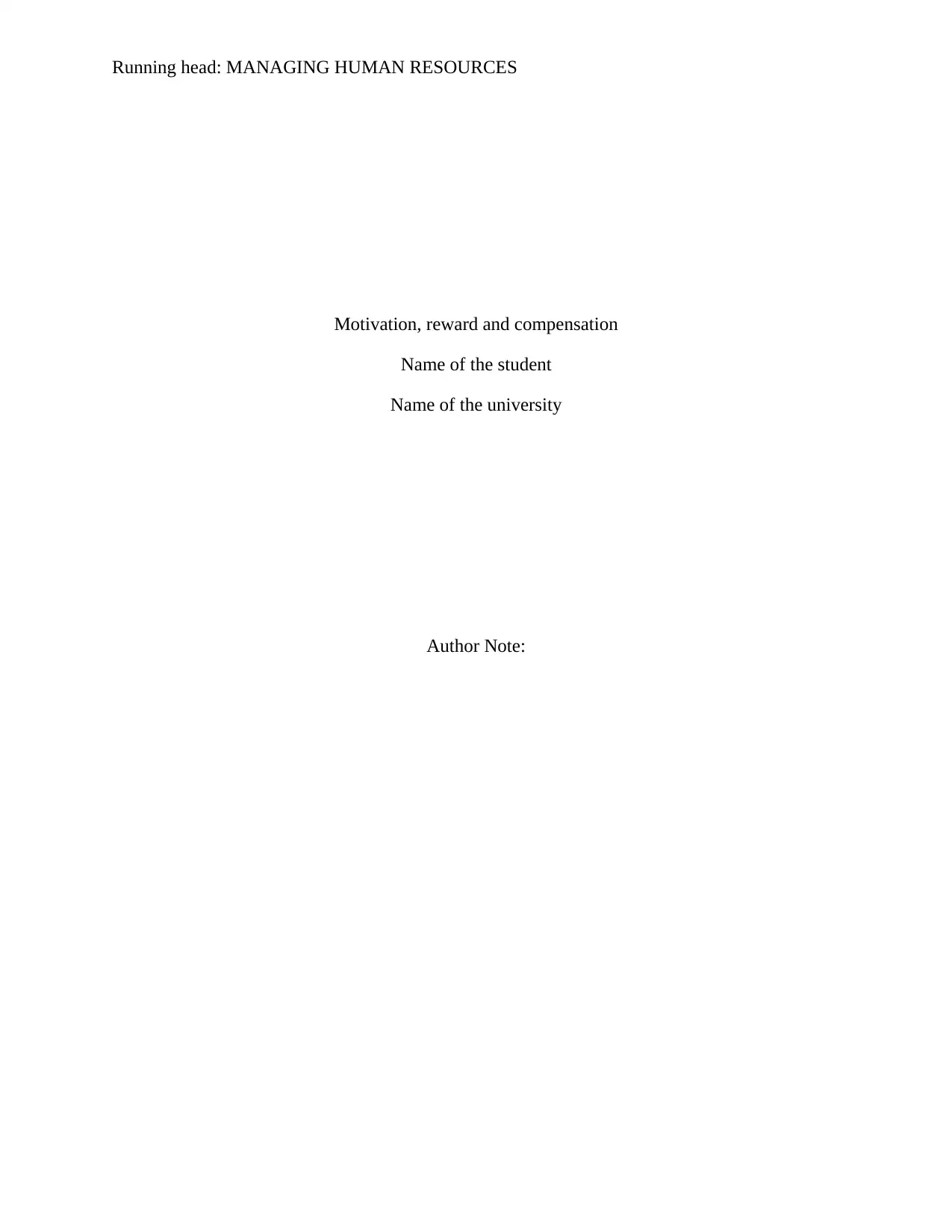
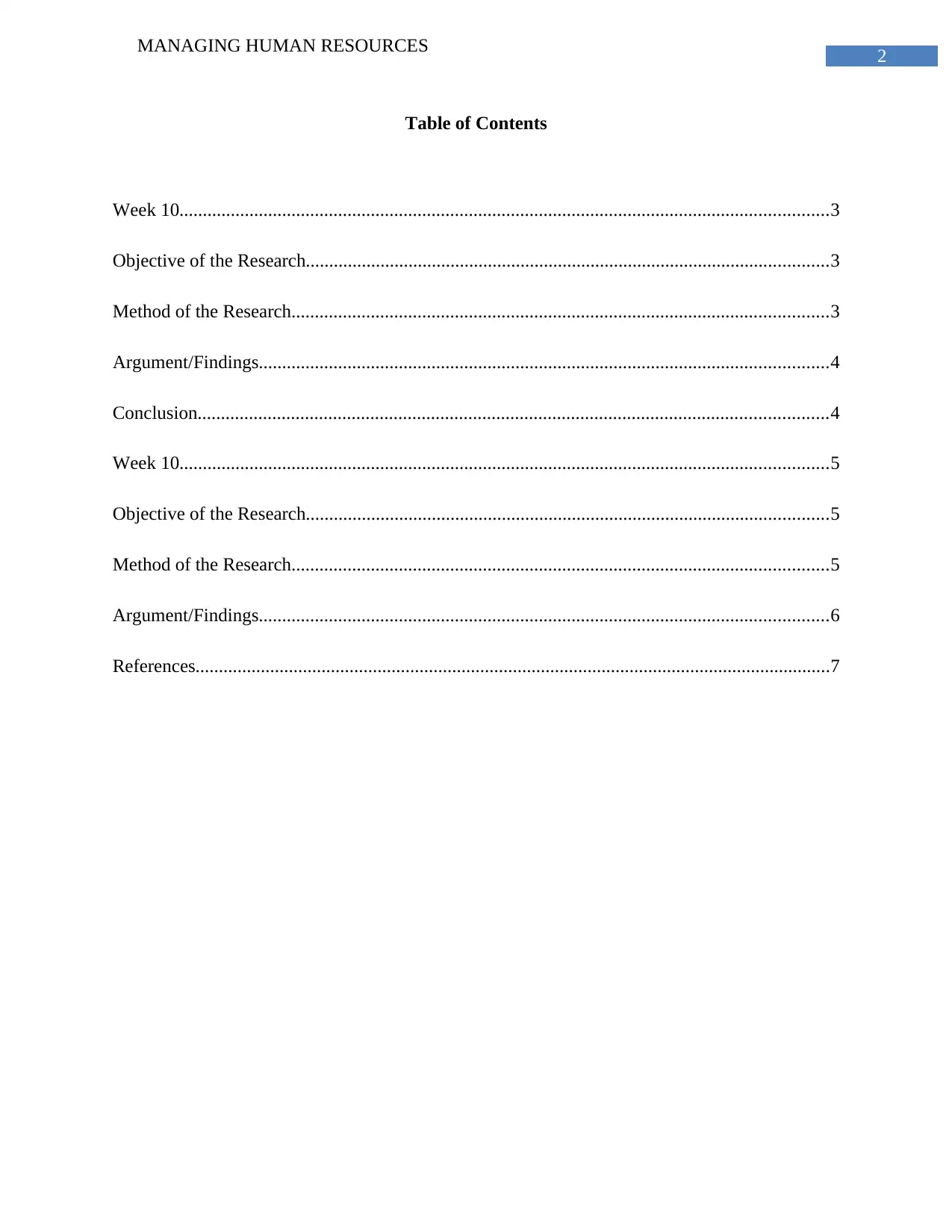
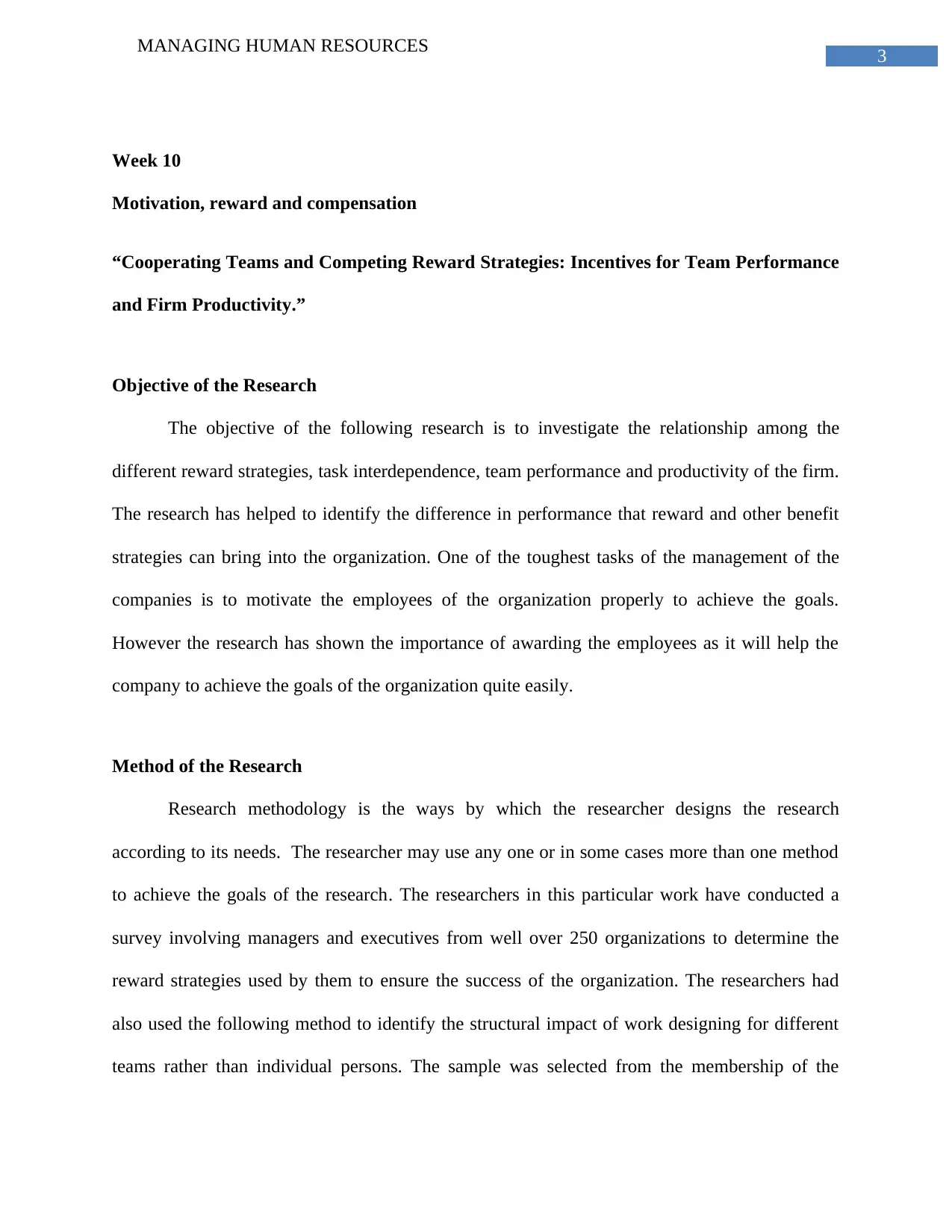
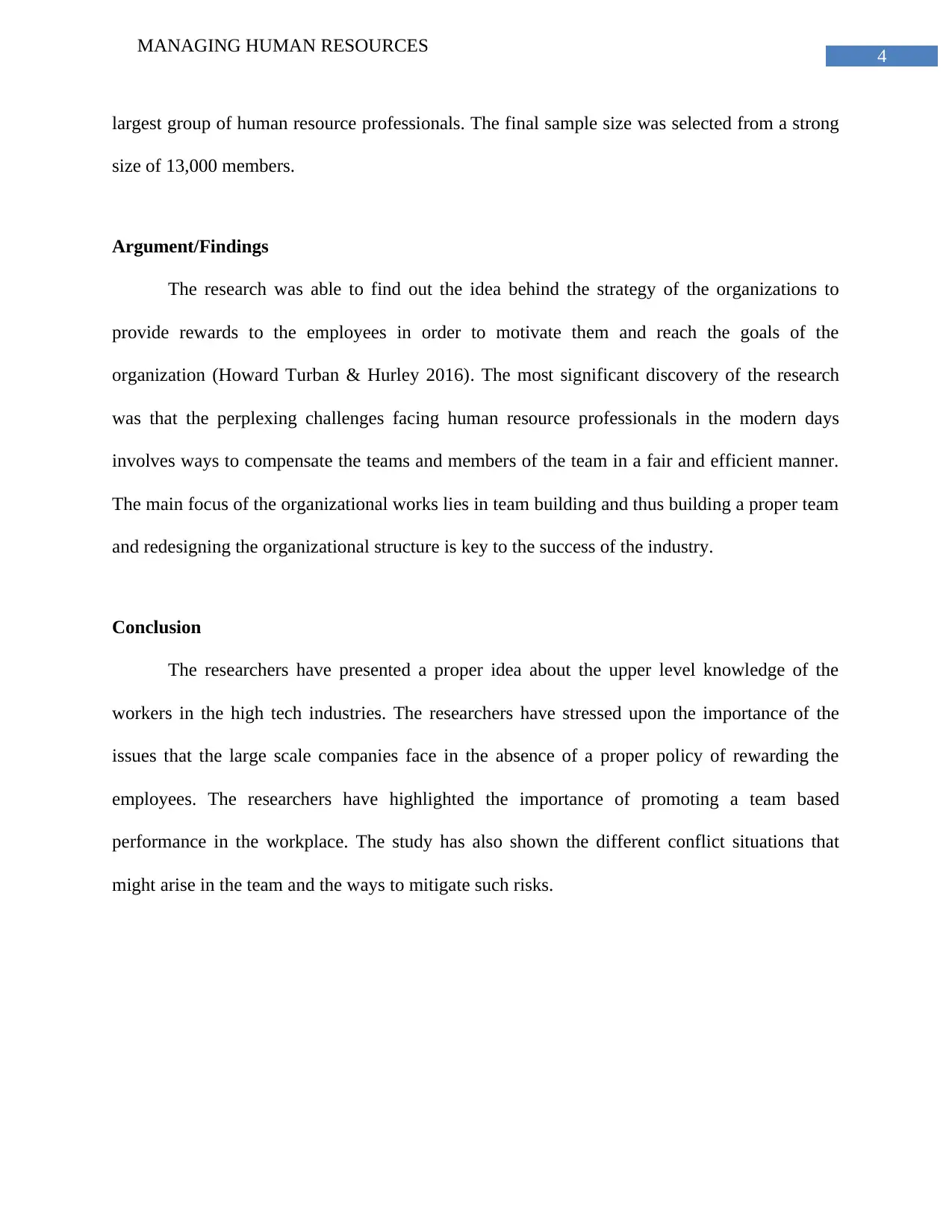
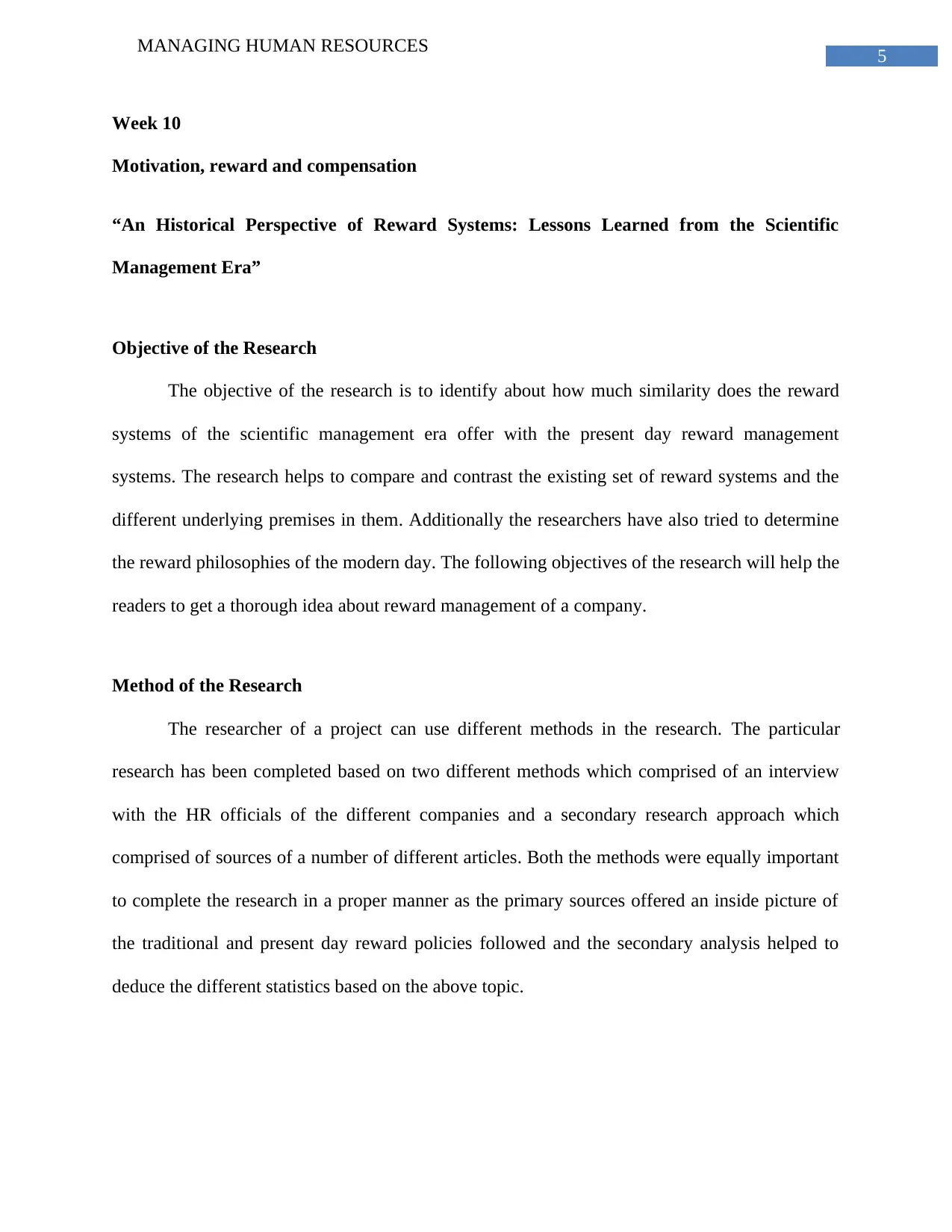
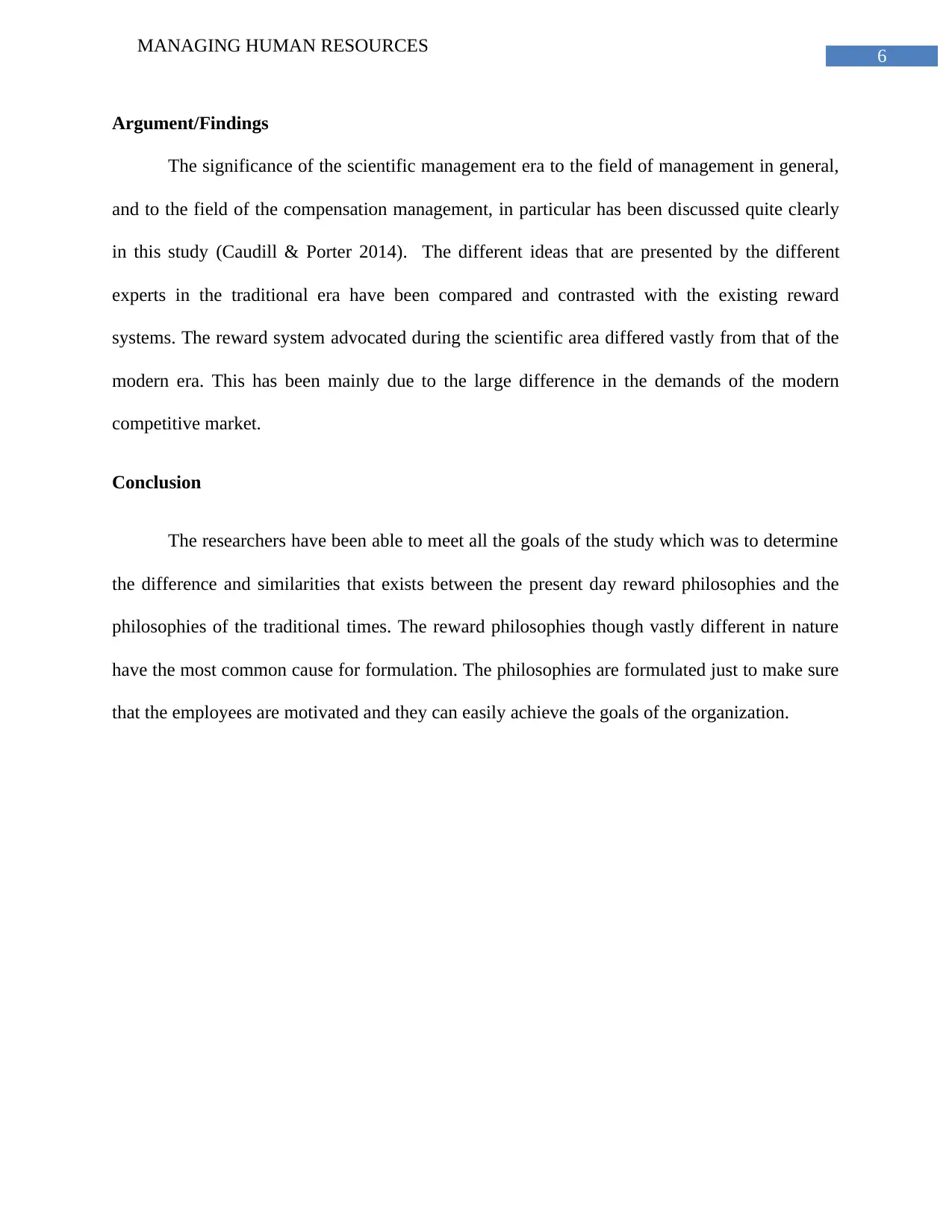
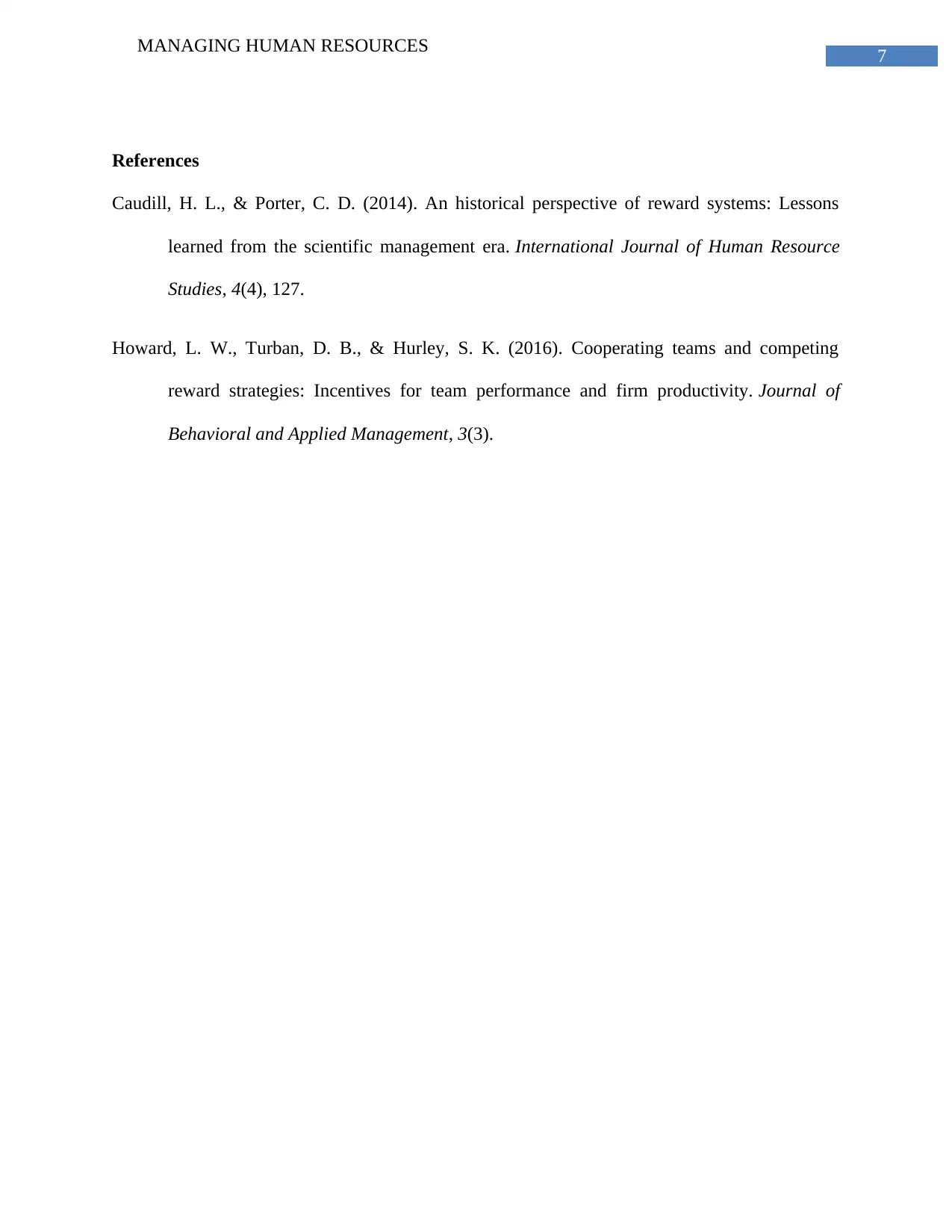





![[object Object]](/_next/static/media/star-bottom.7253800d.svg)